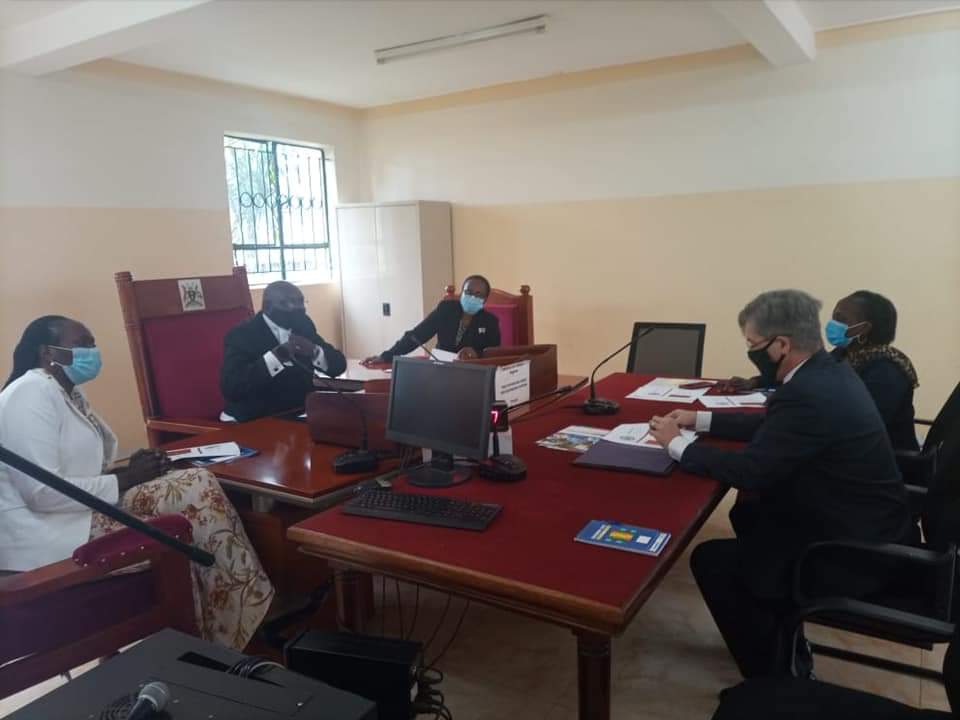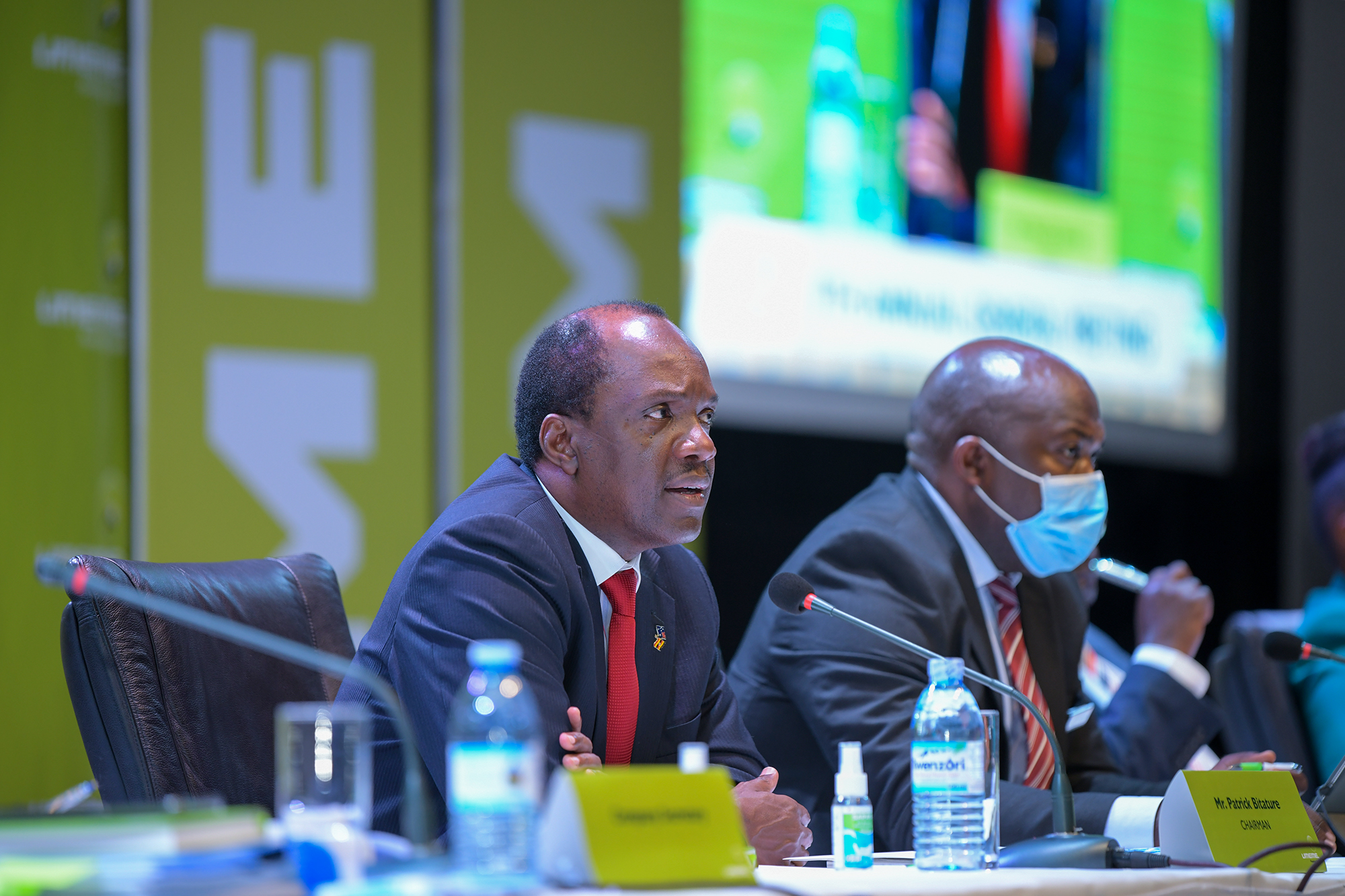
KAMPALA – The Head of the Family Division of the High Court, Justice David Matovu, earlier this week held a meeting with officials from the US Embassy in Kampala to follow up on the fate of inter-country adoptions at the Division.
The meeting was attended by US Consul Arnold Gene and his assistant, Naira Kigozi, in the presence of Judges; Ketrah Kitariisibwa Katunguka and Lydia Mugambe.
The two Judges were assigned the responsibility of handling inter-country adoptions at the Division.
During the meeting, they discussed the US inter-country adoptions process and the legal instruments governing it and the US government agencies in charge.
“This meeting is meant to hear from you and get feedback about the changes that were made. Since the last meeting in November 2020, we have not had any issues in that regard,” Justice Matovu said.
Mr Gene appreciated the court services and applauded the move in streamlining services regarding inter-country adoptions.
“We thank the Government of Uganda for the decision to centralize the hearing of inter-country adoptions. This was a tremendous decision,” he said.
He further informed the Judges that all US citizens intending to adopt from non-Hague countries like Uganda are required to go through six primary steps, which include; choosing a licensed adoption service provider, applying for eligibility to adopt, being referred for a child, adopting the child, applying for eligibility of the child for immigration to the US and lastly obtaining an immigrant visa for the child.
All these processes follow the I-600A approval. The I-600A approval includes specifications of which children can be adopted, such as age, sex and health needs.
“This form can be filled either before or after the child is identified for adoption, and Consular Officers at the Embassy can only accept adoption petitions with proof of an approved I-600A”, Mr Arnold said.
Requirements for the I-600A petition include but not limited to proof of I-600A form approval, adoption ruling and order, child’s certificate, parent’s death certificate if applicable, court file, probation officers report and orphanage file.
Justice Katunguka observed that the court needs help from the Embassy because, at times, orphanage homes and some parents connive with probation officers to lie to Court. She proposed that the Embassy helps with background checks and investigations in case there is a need to. Adding that investigators be attached to Court to ease this process.
The Head of Division expressed concerns on vices surrounding adoptions.
“Adoption is believed in terms of human trafficking and that when people are taken abroad, some bad things happen to them. A lot needs to be done in educating our people,” he said.
Justice Mugambe added that it is such perceptions that scare off genuine parents. She recommended that the embassy helps in getting reports of children who have been adopted detailing their well-being.
Background
On August 3, 2020, the Principal Judge issued circular offering guidance to the High Court when handling Inter-country adoption matters.
The purpose was to address the numerous concerns raised by the key stakeholders on how some Judicial Officers had handled intercountry adoption matter. Hence, there was the need to guide them further to promote uniformity and consistency and restore stakeholder confidence.
A directive was made to the effect that all intercountry adoption matters are transferred to the Family Division, and a record of the same be kept. More so, specific Judges would be appointed to handle them, maintain an inventory and archive all applications and decisions. At the same time, Court would consider the Alternative Care Panel report before granting any Adoption order and later make a quarterly report to the Principal Judge.





